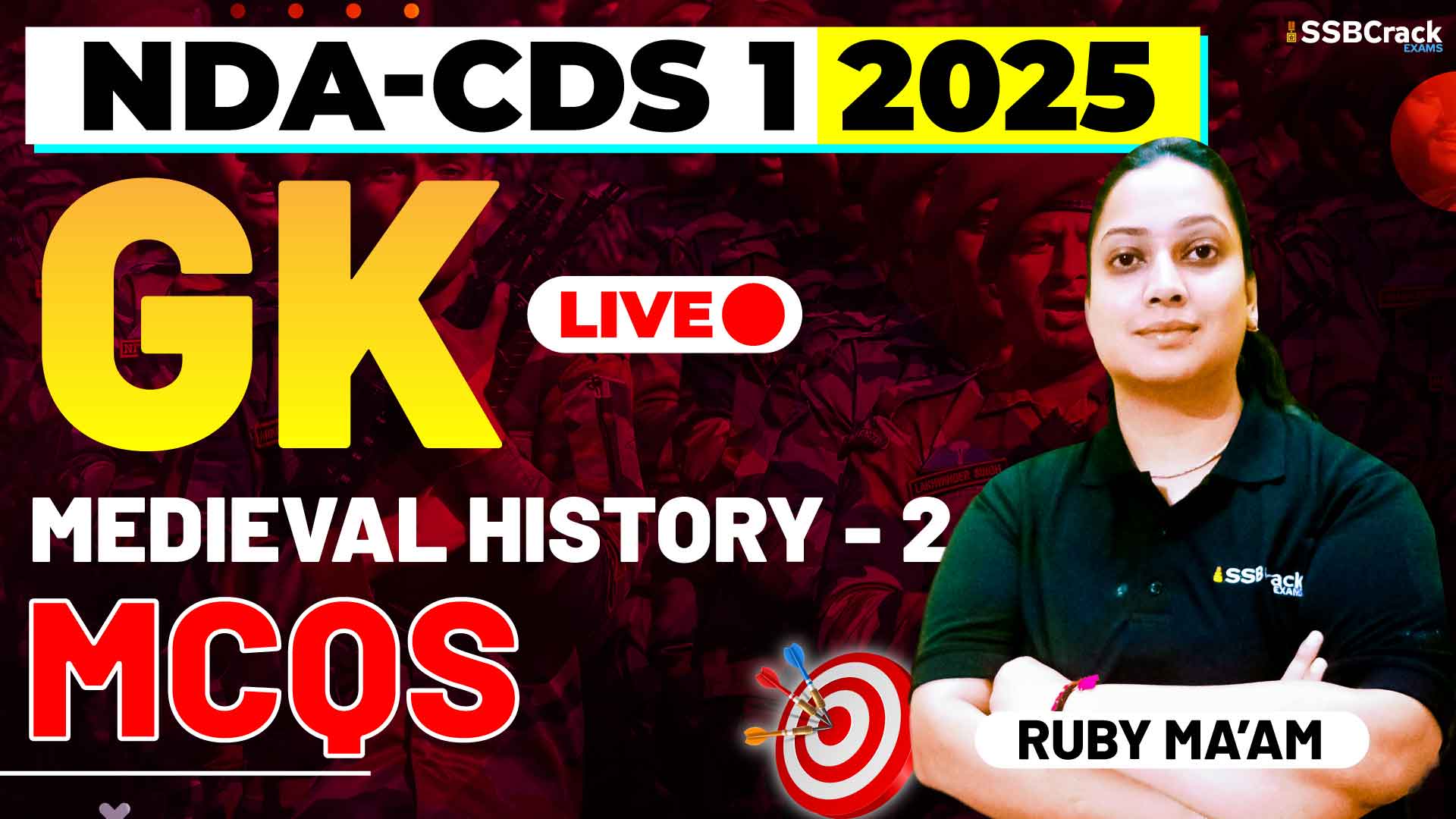The National Defence Academy (NDA) and Combined Defence Services (CDS) exams are among the most competitive exams in India, requiring candidates to excel in multiple subjects, including history. One critical component of history that often appears in these exams is the medieval Indian history section. To master this portion effectively, solving multiple-choice questions (MCQs) is an indispensable strategy. Here’s why:
1. Enhances Conceptual Understanding
MCQs provide a practical way to test your knowledge of key events, figures, and developments of medieval India. Topics such as the Delhi Sultanate, the Mughal Empire, Bhakti and Sufi movements, and regional kingdoms are complex and interwoven. By solving MCQs, students can:
- Identify their strengths and weaknesses.
- Reinforce their understanding of concepts through application.
- Learn to distinguish between similar historical events or figures.
2. Improves Retention
The NDA and CDS exams often test candidates on minute details, such as dates, treaties, rulers, and their contributions. MCQs are an excellent way to memorize such information because they:
- Encourage active recall.
- Offer repetitive exposure to facts, which aids in long-term retention.
- Make learning engaging by breaking the monotony of rote memorization.
3. Develops Exam-Specific Skills
Solving MCQs familiarizes candidates with the exam pattern and question types. Key skills honed through this practice include:
- Time management: Learning to allocate the right amount of time per question.
- Elimination techniques: Narrowing down options to increase the likelihood of selecting the correct answer.
- Accuracy under pressure: Building confidence to answer swiftly and correctly.
4. Focuses on High-Yield Topics
Analyzing patterns from previous NDA and CDS exams reveals certain recurring topics within medieval Indian history. Practicing MCQs:
- Helps prioritize these high-yield areas.
- Guides students in understanding the examiner’s perspective.
- Ensures a more targeted and efficient preparation strategy.
5. Simulates Real Exam Conditions
Regularly solving MCQs in a timed environment replicates the pressure of the actual exam. This simulation:
- Builds familiarity with the question structure.
- Reduces exam anxiety by fostering confidence.
- Trains candidates to perform efficiently within the given time constraints.
6. Encourages Analytical Thinking
MCQs often include questions requiring critical analysis rather than mere rote learning. For example:
- Comparing policies of rulers from different periods.
- Analyzing the causes and impacts of specific events.
- Drawing connections between social, economic, and political aspects of medieval India.
7. Provides Immediate Feedback
One of the most significant advantages of MCQs is the ability to assess performance instantly. This immediate feedback allows candidates to:
- Identify mistakes and rectify them promptly.
- Adjust study plans to focus on weaker areas.
- Track progress over time.
Practical Tips for Solving MCQs on Medieval India
- Start with NCERT Books: Build a strong foundation by studying medieval history chapters from NCERT textbooks.
- Use Question Banks and Mock Tests: Leverage resources like previous year’s question papers, mock tests, and specialized MCQ books.
- Analyze Mistakes: Review incorrect answers to understand gaps in knowledge or reasoning.
- Revise Regularly: Revisit important topics and questions to ensure retention.
- Set Time Limits: Practice solving MCQs within a specified time to mimic exam conditions.
Conclusion
For NDA and CDS aspirants, medieval Indian history is a crucial subject that can significantly impact overall performance. Solving MCQs is not just a preparation tool but a comprehensive strategy to ensure success. By integrating this method into your study routine, you can sharpen your historical knowledge, enhance your exam-taking skills, and boost your confidence for the big day. So, pick up those MCQ books, start practicing, and march confidently toward your goals!







